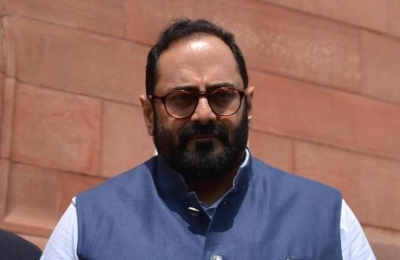New Delhi, March 10 : The current Information Technology (IT) Act, 2000 has several limitations, including the lack of comprehensive provisions on user rights, trust and safety.The proposed Digital India Act (DIA) will give a much-needed thrust to the current regulatory landscape in India to tame Big Tech and empower millions of citizens, the government has emphasized.
The country needs Global Standard Cyber Laws to act as a catalyst and enabler for the $1 trillion digital economy, according to Rajeev Chandrasekhar, Minister of State for Electronics and IT.
This is how the DIA will become a game-changer once it comes into practice.
According to Chandrasekhar, only 5.5 million Indians were on the Internet and today, 850 million citizens are connected on the web, making the country the “largest digitally connected democracy”.
In his presentation to various stakeholders this week, the minister said that from one type of Internet intermediary in the year 2000 to multiple types of intermediaries today (e-commerce, digital media, social media, AI, OTT, gaming etc.), we are facing new complex forms of user harms — catfishing, doxxing, cyber stalking, cyber trolling, gaslighting and phishing, etc.
The proliferation of hate speech, disinformation and fake news are other serious concerns that the old IT regime cannot address.
Hence, there is an urgent need for DIA rules which will “manage the complexities of the Internet and rapid expansion of the types of intermediaries”.
“The new digital law should be evolvable and consistent with changing market trends, disruption in technologies, development in international jurisprudence and global standards for qualitative service/products delivery framework,” Chandrasekhar mentioned.
Emphasizing the need for an open Internet, the minister said that it should offer Choice, Competition, Online Diversity, Fair Market Access, and Ease of Doing Business and Ease of Compliance for Startups.
The proposed DIA will offer adjudicatory and appellate mechanisms for accountable and responsive digital operators; updated intermediary framework; obligations on significant digital operators through classification/ mandates; algorithmic transparency and periodic risk assessments by digital entities.
The DIA will have a core Team in the IT Ministry (MeitY) — Minister of State (MoS) IT, Additional Secretary, GC Cyberlaw, ASG, an outside legal expert and an industry expert.
There will be a comparative study of all relevant global laws pertaining to the Internet and technology in other countries for the draft Digital bill.
“There will be consultations with experts, general public, industry, media, academia, student community, Internet governance forums and consumer forums for the DIA,” according to the minister.
The aim is to fulfill Prime Minister Narendra Modi’s ‘Digital India Goals 2026’ and create a $1 trillion digital economy by 2025-26.
“India will be a significant trusted player in the global value chains for digital products, devices, platforms and solutions,” said Chandrasekhar.
The draft Digital Personal Data Protection Bill would be among the initiatives under the broad DIA — the others being National Data Governance Policy, amendments in the Indian Penal Code (IPC) related to cyber crimes and DIA rules.
“The Indian laws should be able to handle the rapid expansion of social media intermediaries,” said the minister.
na/dpb
#India #replace #regime #tame #Tech #safeguard #Delhi #Rajeev #Rajeev #Delhi #New Delhi #Narendra
.






